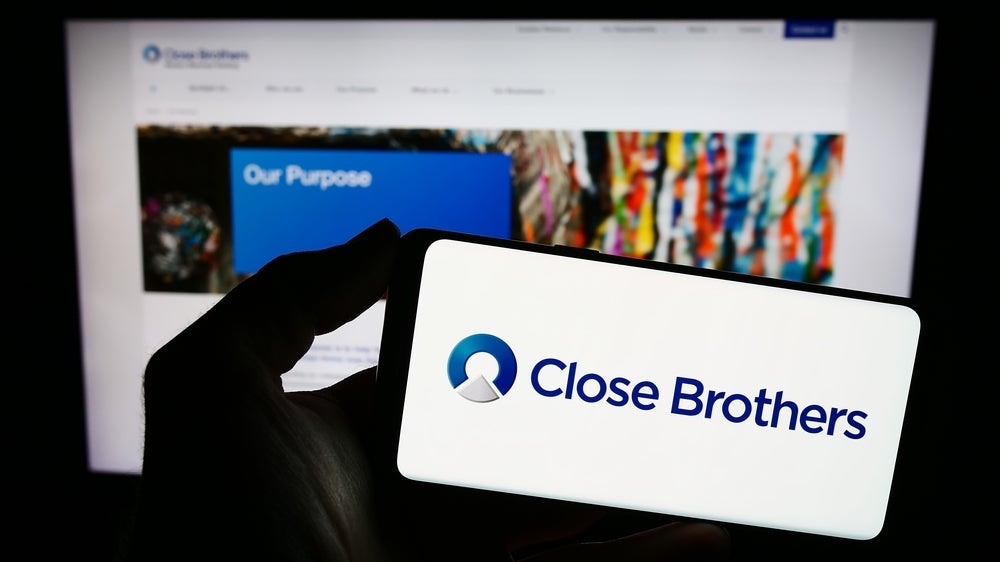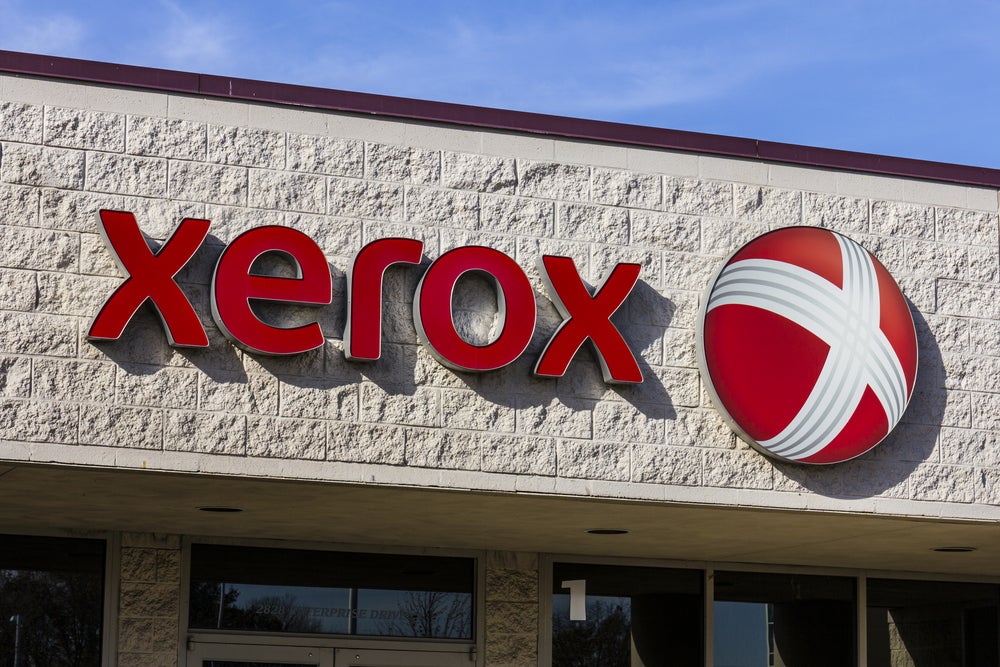A&L leasing subsidiary
sees major jump in after-tax profits.

Access deeper industry intelligence
Experience unmatched clarity with a single platform that combines unique data, AI, and human expertise.
Tower Leasing
Broker Tower Leasing saw its turnover
reduced by more than a quarter in 2009, but its operating profit
rise from £231,000 (€276,752) to £292,000 over the year.
According to the company’s directors’ report,
Tower “has taken steps to ensure that it is in a good position to
take advantage of any upturn in the economy while operating
profitably in the current conditions”.
It adds that the directors are “confident” of
Tower’s prospects for the future, as well as the profitability of
the business.

US Tariffs are shifting - will you react or anticipate?
Don’t let policy changes catch you off guard. Stay proactive with real-time data and expert analysis.
By GlobalDataThe company remains among the larger players in
the UK broker market and the sales-aid specialist was recently
reported to be “in hiring mode” (see Leasing Life,
May 2010).
Lombard Vehicle
Management
The RBS subsidiary shifted confidently
back into profitability in the year to 30 September 2009, according
to its most recently published financial statements.
While the company suffered a post tax loss of
more than £17m (€20m) in 2008, the company returned to form in 2009
with after-tax profits of £15.6m.
Turnover, however, dropped by 5.4% to £75.1m
during this latest period.
Operating profit also rose significantly, up
from a loss of more than £9m to a profit of £35.7m.
The return to profitability, the report states,
took place in the light of the UK government taking control of the
Royal Bank of Scotland Group in December 2008.
The following year saw the company cut all its
broker ties, although deals were signed with a number of companies,
including the Automobile Association (AA) for the supply of 167
recovery vehicles.
By early 2010, the company had signed a deal
for the supply of 800 vans to Green Thumb, a UK lawn treatment
business, and seemed to be showing signs that recovery had firmly
taken root.
By May 2010, it had also secured a deal to
become a vendor under an expanded UK commercial auction programme
at Manheim Auctions.
The company also had transactions with the
government on an arm’s-length basis and at 30 September 2009,
balances with government and affiliated bodies totalled more than
£1m.
Alliance and
Leicester Commercial Finance Plc
Banco Santander leasing and general
finance subsidiary Alliance and Leicester Commercial Finance Plc
performed significantly better in 2009 than in 2008, according to
its end-of-year report.
The report, covering the year to 31 December
2009, shows a small increase in turnover but a major jump in
after-tax profit, from a loss of more than £45m (€54m) to a profit
of nearly £22m.
Operating profits at the company, a subsidiary
of Alliance and Leicester Commercial Finance (Holdings), itself
part of Santander’s corporate banking division, also rose from
£103.8m to £127.2m.
According to the company, this was owed to
factors including an increase in rental income and a decrease in
finance cost and administrative expenses.
Nevertheless, the tone of the report is
somewhat circumspect, stating that there is a “reasonable”
expectation that the company will carry on in operational
existence.
Furthermore, the report states there is
“uncertainty” over future funding as much of its finance comes from
loans from intermediate parent Abbey National with no fixed
repayment date, meaning that the loans are repayable on demand.
However, the risk is mitigated, according to
the report, by the fact that the company’s funding from Santander
has also been secured for the foreseeable future after the board of
Santander UK confirmed it is a going concern.
The value of repossessed stock – including
buses, coaches and commercial stock – in 2009 was just under a
third of that in 2008, dropping from £3.9m to £1.2m.
The year also saw a number of resignations and
appointments, with two directors leaving their posts and another
three brought in.
At the beginning of 2009, the entire share
capital of Alliance and Leicester Plc was transferred from
Santander to Abbey National, also a subsidiary of Santander.
Abbey National is currently an intermediate
parent to Alliance and Leicester.
GE Capital Ltd
GE Capital’s London-based outfit
showed signs of continuing to be affected by the impact of the
global financial crisis as sales fell 23%, due to “a reduction in
activity for corporate and project finance work”.
Turnover also dropped from £12.8m (€15.3m) in
2008 to £9.87m in 2009, according to its non-consolidated financial
statements.
The company’s principal activities are in
“general corporate and project finance work”, of which leasing is a
small part.
And although its pre-tax profit climbed almost
80% from £553,000 in 2008 to £994,000 in 2009, its after-tax profit
fell more than 50% to £337,000.
Nevertheless, the report for the year ending 31
December 2009 states that “the directors are satisfied with
performance of the company”.
It adds that “while market conditions in 2009
were challenging, resulting in reduced levels of business and cost
reductions being made, expectations are that the business shall
continue its regular operating activities in 2010.”
Among the principal risks and uncertainties for
the year was an exposure to credit risk following the economic
downturn, as well as “risks arising from non-compliance with FSA
regulations”.
This risk, the report states, is managed
through the company’s “procedures and policies”, as well as regular
training for staff on compliance and a dedicated compliance
officer.
Its parent company, General Electric Company,
was recently downgraded to an AA risk rating, but GE Capital “has
secured its planned long-term funding needs to cover its business
activities in 2010” according to the report.
Things are also in place (see Leasing Life,
May 2010) for ‘double-digit growth’ in GE Capital’s
European leasing and vendor finance businesses, while new hires
could also be on the cards.
Proposed growth will have a strong focus on
the industrial segment, according to chief commercial officer
Isabel Fernandez.
|
Alliance & Leicester |
|||
|
2009 (£000) |
2008 (£000) |
Change (%) |
|
|
Turnover |
145,936 |
142,925 |
2.11 |
|
Gross profit |
142,744 |
141,982 |
0.54 |
|
Operating (loss)/profit |
127,229 |
103,830 |
22.5 |
|
Pre-tax (loss)/profit |
25,683 |
(60,956) |
N/A |
|
After-tax (loss)/profit |
21,533 |
(45,212) |
N/A |
|
GE Capital Ltd |
|||
|
2009 (£000) |
2008 (£000) |
Change (%) |
|
|
Turnover |
9,865 |
12,838 |
-23.2 |
|
Operating (loss)/profit |
877 |
990 |
-11.4 |
|
Pre-tax (loss)/profit |
994 |
553 |
79.7 |
|
After-tax (loss)/profit |
337 |
738 |
-54.3 |
|
Lombard Vehicle |
|||
|
2009 (£000) |
2008 (£000) |
Change (%) |
|
|
Turnover |
75,084 |
79,398 |
-5.43 |
|
Operating (loss)/profit |
35,691 |
(9,064) |
N/A |
|
Pre-tax (loss)/profit |
22,408 |
(23,640) |
N/A |
|
After-tax (loss)/profit |
15,625 |
(17,220) |
N/A |
|
Tower Leasing |
|||
|
2009 (£000) |
2008 (£000) |
Change (%) |
|
|
Turnover |
2,502 |
3,375 |
-25.9 |
|
Operating (loss)/profit |
292 |
231 |
26.4 |
|
Pre-tax (loss)/profit |
281 |
217 |
29.5 |
|
After-tax (loss)/profit |
199 |
152 |
30.9 |
|
Source: Leasing Life |
|||







